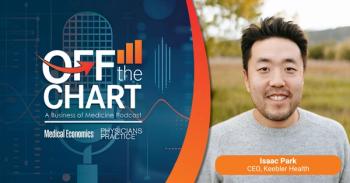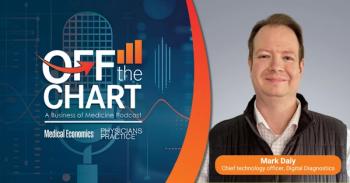
Winning The Phone Tag Game
One practice reduces phone tag with an online appointment scheduling system
David Lawrance and his 170-member staff were fed up with phone tag.
Lawrance, medical director of the Urbana, Ill., McKinley Health Center, a clinic for students of the University of Illinois at Urbana-Champaign, says the games began when students left messages at night to request appointments. The receptionist would call back the next day, but the student wouldn't be home ... and so on, and so on.
The solution? An online appointment system. "This is a well-connected campus," says Lawrance. "Everyone's got a computer here, and they're on their computers as much as they're doing anything else."
So now, when prospective patients are feeling ill, they just visit the McKinley Web site,
Lawrance emphasizes that the site has been carefully designed so that students know to call 911 for emergencies. In fact, when potential patients log on, they must check a box indicating that they have read and understand that guideline. "We don't want anyone to accidentally make a serious mistake," says Lawrance.
Students are also instructed to stop by the office if they need a flu shot, and to go to the pharmacy if they need a prescription refilled. After making their way through the preliminary disclaimers, patients choose a physician and a time, type in their symptoms, and an e-mail confirmation sails into their inbox.
Positive results
Word about the convenient scheduling system is spreading through the campus. So far, about 50 students a day are using it.
"We overfill every day," says Lawrance, who adds that he hasn't heard a single complaint about the scheduling system among the students.
The Health Center has found that the no-show rate among those making online appointments is lower than those using the phone -- about 1 percent compared to 4 percent. These results are encouraging, considering the system is only in a pilot stage, quietly launched last summer with two doctors. Lawrance expects the entire shebang, staffed by 12 physicians, to be in full swing by early this summer.
Before that happens, Lawrance says there are still a few changes to be made. For one, he wants to move pharmacy functions to the Web site. Also, the physicians are readjusting the schedule to offer some 30-minute appointments, instead of the one-size-fits-all 15-minutes.
Any glitches? A few. Sometimes a time slot gets double-booked, admits Lawrance. And once in a while, students will make an appointment for a flu shot or a drug refill, although neither one requires an appointment.
But Lawrance expects all of this to be cleared up by the time the pilot program goes campus-wide, giving the clinic the chance to educate the student body on making online appointments.
Seamless integration
The University of Illinois at Urbana-Champaign is the first among the big 10 universities to pioneer such a system. And so far, the physicians are pleased with it -- mostly because they don't notice it.
"It's been pretty transparent to most of us," Lawrance says. "If everything's working well, we wouldn't be able to tell the difference between a Web-based appointment and one made over the phone."
To make sure all patient information remains private, the campus computer staff have set up a system of secure servers so that all data entered by students is encrypted, and only the Health Center can decipher it.
So, McKinley's doctors are happy and the students are happy, but what of the receptionists? Will they be replaced by the soon-to-be robust newfangled appointment system?
"Not a chance," says Lawrance. "There are tons of other things for them to do."
Suz Redfearn can be reached at
This article originally appeared in the May/June 2002 issue of Physicians Practice.
Newsletter
Optimize your practice with the Physicians Practice newsletter, offering management pearls, leadership tips, and business strategies tailored for practice administrators and physicians of any specialty.








